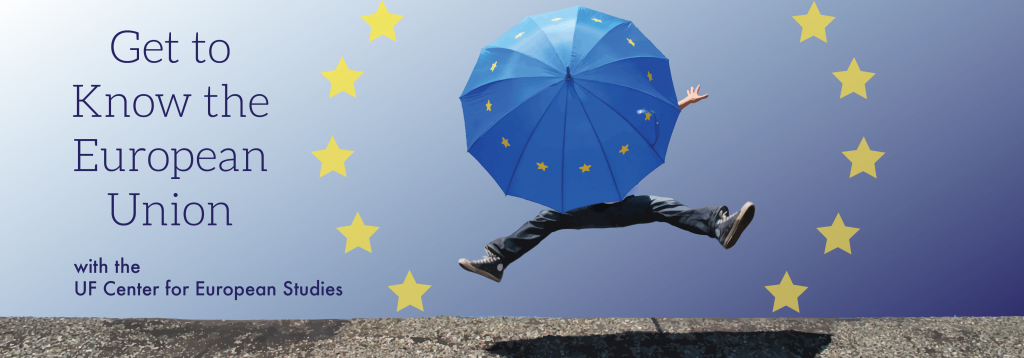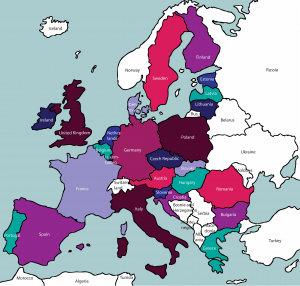
The European Union (EU) is a politico-economic union between 28 European countries that cover much of the European continent. The first iteration of the EU was set forth in the 1958 Treaty of Rome by Belgium, Germany, Italy, Luxembourg and the Netherlands. This treaty established the European Economic Community (EEC), which was designed to create a common market of goods, workers, services and capital within the member states.
In 1993, the Maastricht Treaty established the European Union under its current name and introduced European citizenship.
Several treaties since 1993 have amended the original treaties and defined the democratic character of the EU and its institutions (Treaty of Amsterdam 1997, Treaty of Nice 2001 and Treaty of Lisbon 2009).

EU Countries:
Austria (1995), Belgium (1958), Bulgaria (2007), Croatia (2013), Cyprus (2004), Czech Republic (2004), Denmark (1973), Estonia (2004), Finland (1995), France (1958), Germany (1958), Greece (1981), Hungary (2004), Ireland (1973), Italy (1958), Latvia (2004), Lithuania (2004), Luxembourg (1958), Malta (2004), Netherlands (1958), Poland (2004), Portugal (1958), Romania (2007), Slovakia (2004), Slovenia (2004), Spain (1986), Sweden (1995), United Kingdom (1973)
Today the EU is comprised of the following institutions:
- European Parliament
- European Council
- Council of the European Union
- Court of Justice of the European Union (CJEU)
- European Central Bank (ECB)
- European Court of Auditors (ECA)
- European External Action Services (EEAS)
- Committee of the Regions (CoR)
- European Investment Bank (EIB)
- European Ombudsman
- European Data Protection Supervisor (EDPS)
For more information about the European Union:
The official website of the EU
The official website of the Delegation of the European Union to the United States